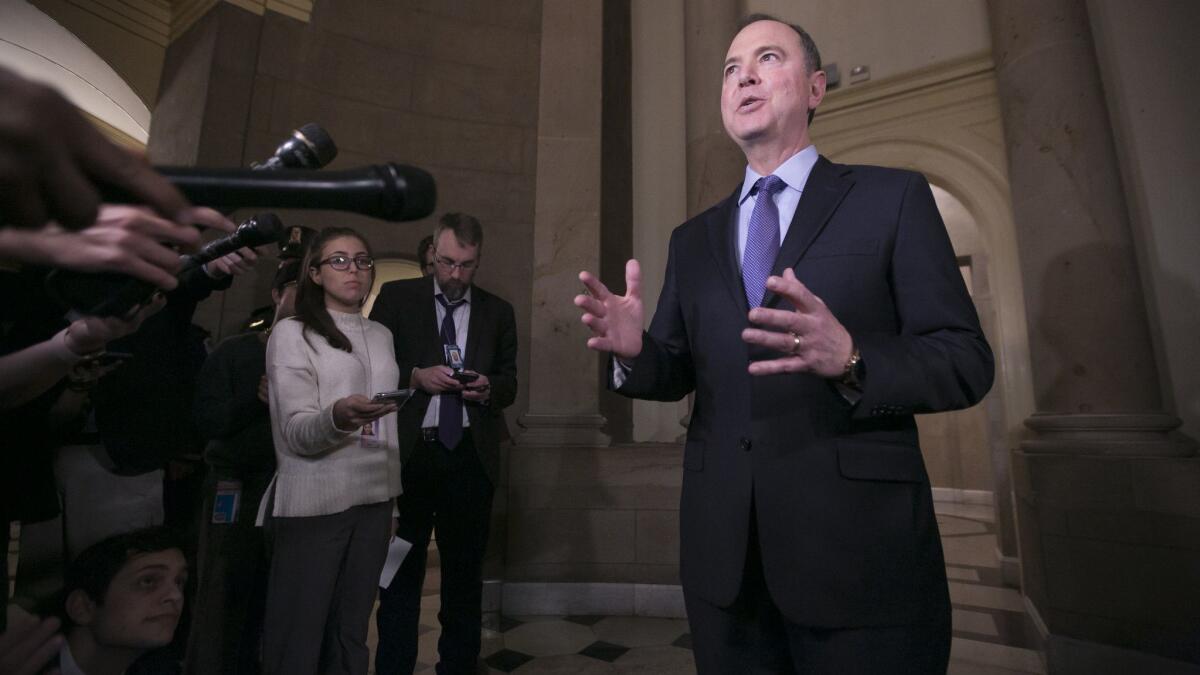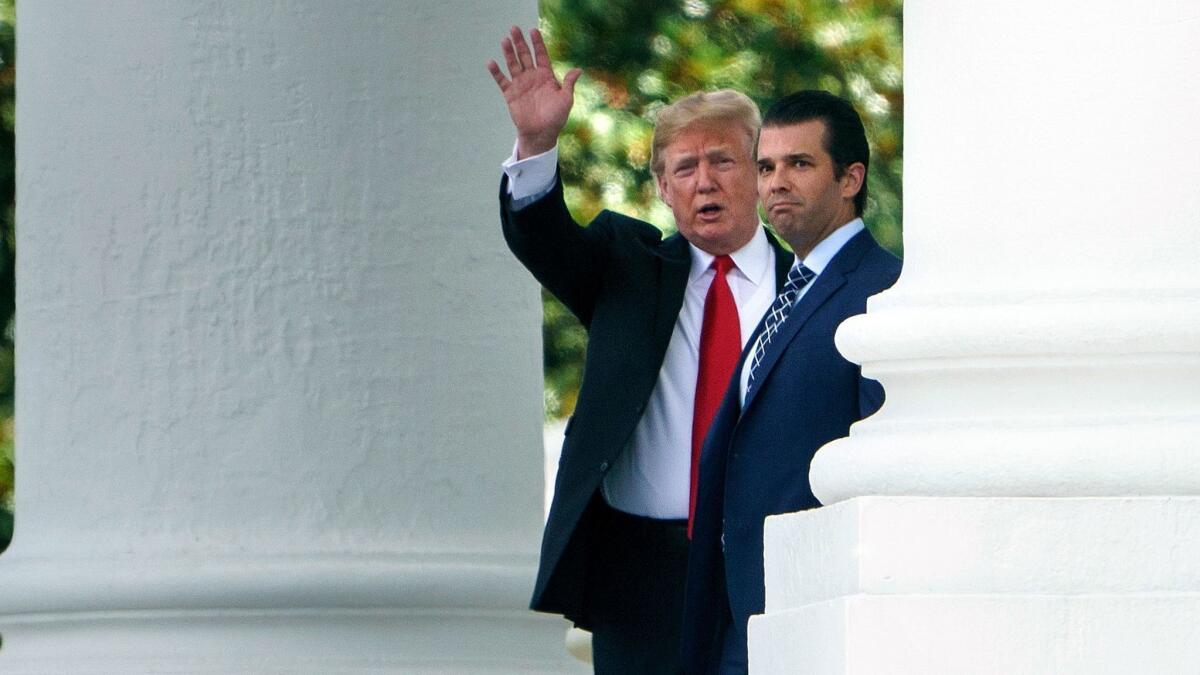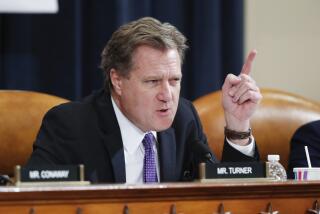House Intelligence Committee says it will expand inquiry beyond Russian meddling

The House Intelligence Committee, now under Democratic control, said Wednesday it intended to expand its work to probe any alleged foreign influence over President Trump, whether it comes from Moscow or anywhere else.
The decision ensures ongoing headaches for the White House even if the panel doesn’t find any conspiracy between the Trump campaign and Russia during the 2016 election, the original focus of the investigation.
It also could allow Democrats to pry into the president’s personal finances and the Trump Organization, the private company that includes his real estate developments, licensing deals and other ventures.
The decision was announced the morning after Trump said in his State of the Union speech that “ridiculous partisan investigations” were imperiling the country’s prosperity.
“We are not going to be intimidated or threatened by the president,” Rep. Adam Schiff (D-Burbank), the committee chairman, told reporters. He said the panel would “investigate any credible allegation that financial interests or other interests are driving decision-making of the president or anyone in the administration.”
Trump responded angrily at the White House, saying Schiff “has no basis” to investigate his personal finances.
“He’s just a political hack who’s trying to build a name for himself…. It’s called presidential harassment,” Trump told reporters.
Jack Langer, a spokesman for Republicans on the committee, also was sharply critical.
“This is a gross abuse of a committee that was created to do oversight of the intelligence community, not to conduct sprawling, endless investigations of one party’s political opponents,” he said in a statement.
The intelligence committee, which held its first hearing since Democrats won control of the House in the Nov. 6 midterm election, also voted to send transcripts of its closed-door interviews to special counsel Robert S. Mueller III.
Mueller could use the transcripts to pursue charges of lying to Congress if he determined that people interviewed by the committee — which include Trump’s eldest son, his son-in-law and other allies — were not truthful.

The special counsel has brought two such prosecutions against the president’s former associates.
Trump’s longtime lawyer Michael Cohen pleaded guilty in November to lying about a Moscow skyscraper deal that he pursued on Trump’s behalf during the 2016 campaign.
Roger Stone, a Republican operative who helped launch Trump’s political career, was indicted last month for alleged witness tampering and lying about his conversations involving WikiLeaks, which posted Democratic Party emails stolen by Russian hackers. Stone has pleaded not guilty.
Mueller already has access to most of the transcripts, which were provided to the Office of the Director of National Intelligence in September for a declassification review.
Since then, Mueller has only requested the transcript of the interview with Stone. The material was extensively cited in the indictment against him.
Rep. Mike Conaway (R-Texas), a member of the House committee, said the vote to give the transcripts to Mueller “looks like theater.”
The committee conducted more than 50 interviews in 2017 and 2018 when the panel, then under Republican control, conducted its own investigation of Russian interference in the presidential campaign.
That probe concluded there was no conspiracy between Moscow and Trump’s team, an assessment Democrats said was premature.
More to Read
Get the L.A. Times Politics newsletter
Deeply reported insights into legislation, politics and policy from Sacramento, Washington and beyond. In your inbox three times per week.
You may occasionally receive promotional content from the Los Angeles Times.







